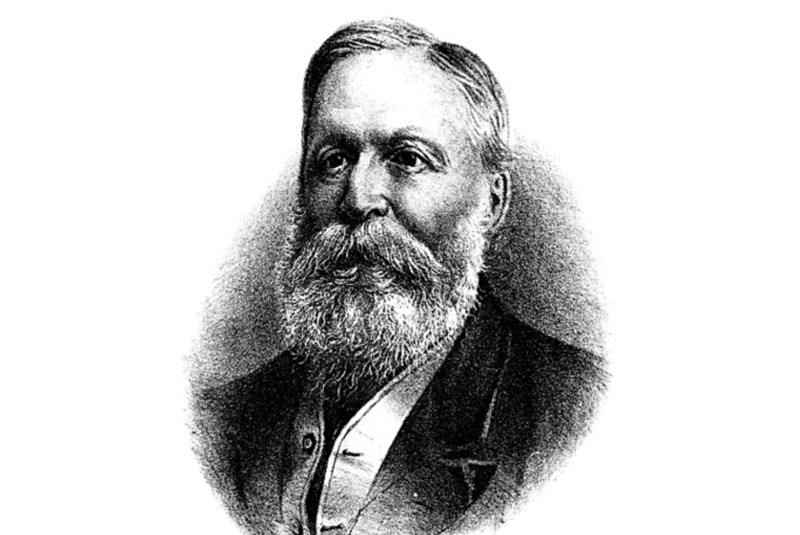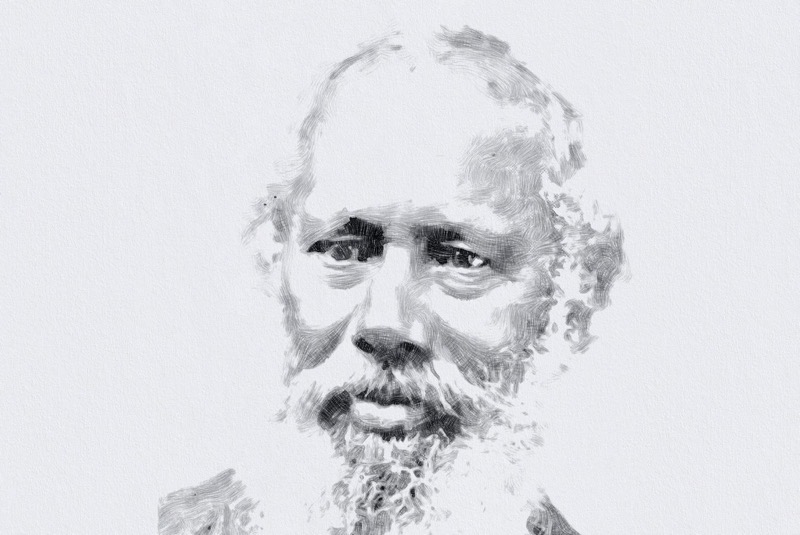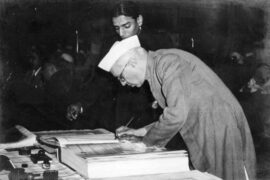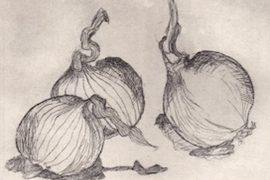Sir,…A man of the name of Edward Peters, working near here, has asked me to write to your Honor to say he put in a claim for the discovery of the Gold Diggings on and near the “Tuapeka” and “Waitahuna” Rivers, and also near “Tokomairiro,” many months ago, and he now considers he is the person who is entitled to the reward offered by the Government, and not Mr. Read, as it is well known to many in this neighbourhood that he obtained gold from the above locality.
It was the second time the Provincial Government received such a letter. It was from named Edward Peters, an Indian man who stumbled upon gold, washing it from the sands of the Tokomairiro River.. At the time, the Otago provincial government had offered a reward for discovering gold. Yet, the letter had a note scribbled on it:
Received 12 July, 1861—Disposed off.
Instead, Thomas Gabriel Read had claimed all the fame for the Otago gold rush of New Zealand.
At the time, Gold regularly made headlines in New Zealand’s newspapers. As reports of gold rush in Siberia, California, and Australia came in, surveyors in Otago had noted the presence of gold in the province; however, common people did not show much interest or enthusiasm in putting in the effort to discover Gold.
In 1853, Edward Peters, a cook from the ship named Maori, served six weeks in Dunedin jail for taking leave. Peters, originally from Mumbai, had some experience seeking gold as he worked at the California goldfield.
Edward Peters, or ‘Black Peter,’ as he was called, found the southern Otago landscape interesting. He travelled to the Molyneux area before entering Central Otago and settled in the Glenore area. He built huts and drove bullocks to make a living.
In 1857, Peters found gold for the first time at Tuapeka. He used it to buy his provisions. Again, in 1858, a party of shepherds moved south alongside the Tokomairiro River, and Peters was amongst them.
After dinner, he took down the dishes to wash in the waters of the river when he decided to sift for gold. Once again, he successfully found it. He gifted the gold to a Mr Dawson, who made a ring out of it for his wife. The ring can be seen at the Otago Settlers Museum.
In 1860, Mr. John L. Gillies worked with Peters to find gold in the Tuapeka Stream. He learned to sift for gold and found himself small weights of it. Gillies was the one who reported his findings to Read.
Gabriel Read then began his excavations in Otago and found ‘a beautiful soft slate and saw the gold shining like the stars in Orion on a dark frosty night.’
The day before Mr Read declared his claim on the discovery of gold, he had met another man who had mentioned Peters’ findings. Peters’ original discovery had encouraged Read to dedicate himself to the pursuit of finding a working goldfield.

Since gold was being discovered in different parts of the world, excavations for it were strongly incentivised with rewards offered by the government. In 1857, a ‘handsome reward’ of £500 was promised by the Otago Provincial Council to the finder of a goldfield in Otago. It naturally attracted many to pursue an excavation.
A few had already reported finding gold on the banks of rivers and streams; however, the government and the newspapers did not take the claims of finding gold seriously.
When Peters reported his findings, his efforts were overlooked ostensibly because of his ‘lack of experience.’ While he had experienced the gold rush of California, he had very limited knowledge of equipment; however, as evidence suggests, he knew how to find gold by washing off dirt and where to look for it.
A man named John Thomson took an interest in investigating Peter’s findings; however, they did not find enough gold to prove the possibility of a working gold mine. This was again attributed to Peter’s lack of skills in mining. ‘I believe we lost more than we gained,’ Thomas later recalled.
Thomson became a manager of the Nil Desperandum and Victory mines at Waipori. He returned to looking for gold once again when he heard claims from Mr. Read in Otago. Thomson also became a pioneer in the establishment of the Kaitangata coal mines.
When Read came to Otago, he was known to be an expert in mining. At first, even his reports of the discovery of gold were not taken seriously. It was a month after Mr. Read’s letter to the Otago Witness, when a headline—’Gold, Gold, Gold, is the universal subject of conversation‘—was published on 6 July 1861. It was then that a genuine gold ‘rush’ was declared.
Read claimed the title of being the one to discover gold in Otago, and the reward doubled from the earlier offer promised by the council. Peters had written twice to claim the reward for his discoveries with the help of witnesses such as John Foster of Kaihiku Falls, who wrote on Peters’s behalf.
It was not until 1885 that Peters was recognised as the pioneer to discover gold in Otago, and that too only because of various testimonies from Vincent Pyke, a politician and citizen of Balclutha- where Peters lived in the later periods of his life. The government only endowed him with £50, 5 per cent of the reward that was falsely given to Read, and that too on the condition of being matched by the public.
After denying the rewards in 1861, Peters returned to his previous employment and gave up on looking for gold. He passed away in 1893 at the Benevolent Institution in Dunedin.
In an address to commemorate the findings of Edward Peters, New Zealand’s first Governor-General of Indian heritage acknowledged the politics of gold. ‘Like a double-edged sword, the discovery of gold has made some individuals rich whilst ruining the lives of others,’ he said.
The gold rush in Otago province changed the economy of the entire nation, and within six months, Dunedin’s population had increased to more than twice its original population. While Read has gained all the fame and credit for the spike in the economy, Peters did not receive much recognition; there were mere mentions of it in the historical documents related to gold.
Due to racism, the media and politicians downplayed his efforts and achievements in the discovery of gold; the only recognition he received was for the ‘exotica inherent in his race.’
-30-
Copyright©Madras Courier, All Rights Reserved. You may share using our article tools. Please don't cut articles from madrascourier.com and redistribute by email, post to the web, mobile phone or social media.Please send in your feed back and comments to [email protected]











